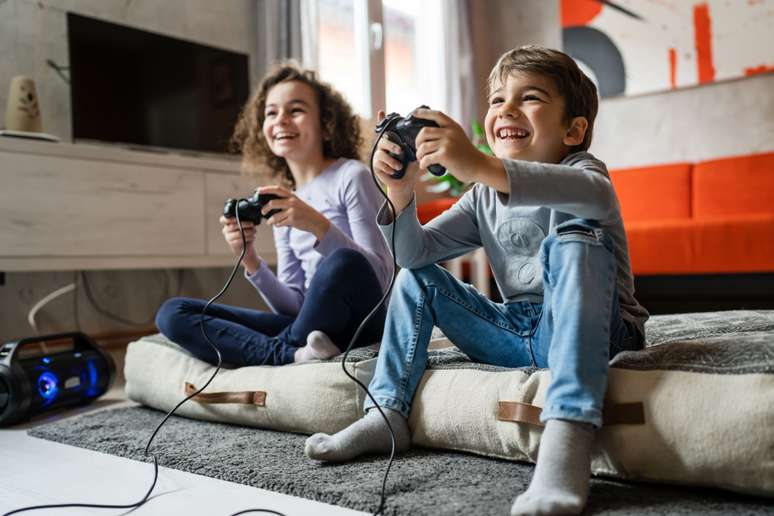The psychologist explains how exposure to electronic devices can affect the child’s development
Cell phones, computers and televisions are always present in our daily lives, accustoming our minds to the rapid and excessive information transmitted by these devices. Although they are already part of our daily lives, we are not born prepared to deal with so much information during childhood, which can affect the child’s development if the introduction to screens is not done carefully.
The risks are both physiological and psychological. According to the World Health Organization (WHO), exposure to electronic screens, for any period, is not recommended for children under the age of 2. If this happens, there may be problems with the vision, behavior, learning and sociability of the little ones in the future.
However, although not recommended, the use of screens tends to be frequent. To give you an idea, a survey carried out by the Maria Cecilia Souto Vidigal Foundation showed that the use of electronic devices by children has increased from 15% to 59% in the last two years.
Monitor children’s screen time
The most important thing for child development is to provide the child with stimuli that stimulate learning. “Parents need to be involved children’s routine, it is important to have quality moments and experiences. Bringing ideas for games, games and interactions is essential,” says psychologist Vanessa Gebrim, clinical psychology specialist at PUC-SP.
To help parents who struggle to manage their children’s screen time, the expert lists the main advice on the topic. Watch!
1. Communication is essential
The main advice for keeping your children’s development up to date is to always have a dialogue with the little ones. “We need to set an example, it makes no sense to take the tablet away from the child if the parents have the mobile phone in their hands all day. The big problem is excessive use and not using it, so the challenge is to find a balance that is good for you to everyone. And, to find it again, the best way is to always maintain an open dialogue with your children”, advises Vanessa Gebrim.

2. Establish rules
Having a defined routine, times to play, talk and gradually introduce screens is a good alternative. “Delegating tasks to children, encouraging discoveries, teaching them to deal with frustrations, leave the baby making mistakes and showing that this is natural, helping put away toys, throwing clothes in the bin, can also help create a sense of responsibility”, he adds.
3. Avoid making your child too independent
The ideal is for children to have the autonomy to become more self-sufficient adults, however there must be restrictions. “To stay exposed to screens for a long time It can cause emotional problems, such as depression, anxiety, lack of connection with family and friends, exaggerated euphoria, which result from excessive stimulation from devices”, warns the psychologist.
4. Encourage screen time
It’s important to keep fun in children’s lives to protect them from the side effects of screens. “There are many benefits to keeping children away from screens, such as reducing stress and anxiety, giving yourself a moment of relaxation and concentration, doing different things that break out of the routine is very healthy,” she explains.
“Create new habits such as playing, traveling, have a special hobby, sport and, above all, routine. You must have an established schedule for using the equipment. This way the child begins to understand that there is a life outside the screen,” says Vanessa Gebrim.
5. Educate and entertain
Early childhood is a learning process, but it’s also a time to enjoy your little ones’ childhood, without screens and intermediate devices. “Newborns need stimuli applied in the right way. The lack or exaggeration can be negative. Furthermore, a high use of screens as a ‘pedagogical resource’ is not recommended. It is necessary to avoid excessive stimuli for the sole purpose of passing the time and do not educate”, concludes the psychologist.
By Isabelle Rocha
Source: Terra
Ben Stock is a lifestyle journalist and author at Gossipify. He writes about topics such as health, wellness, travel, food and home decor. He provides practical advice and inspiration to improve well-being, keeps readers up to date with latest lifestyle news and trends, known for his engaging writing style, in-depth analysis and unique perspectives.









